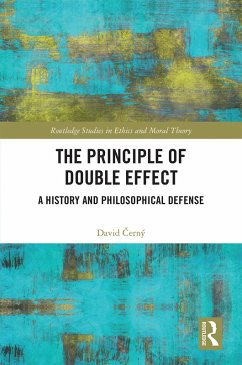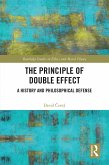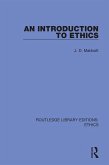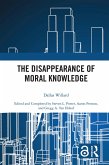The book is divided into two parts. The first part thoroughly examines the history of double effect reasoning. The author's history spans from Thomas Aquinas's opera omnia to the modern and influential understanding of the principle known as proportionalism. The second part of the book elucidates the principle and addresses various objections that have been raised against it, including those that arise from an in-depth discussion of the trolley problem. Finally, the author examines the role of intentions in ethical thinking and constructs a novel defense of the principle based on fine distinctions between intentions.
The Principle of Double Effect: A History and Philosophical Defense will be of interest to scholars and advanced students working in moral philosophy, the history of ethics, bioethics, medical ethics, and the Catholic moral tradition.
Dieser Download kann aus rechtlichen Gründen nur mit Rechnungsadresse in A, B, BG, CY, CZ, D, DK, EW, E, FIN, F, GR, HR, H, IRL, I, LT, L, LR, M, NL, PL, P, R, S, SLO, SK ausgeliefert werden.
"David Cerný's monograph is authoritative, imaginative, and cutting-edge. It is the only work I know of that sheds light on the intellectual origins of the principle of double effect and relates them to the contemporary debate in a manner that dispels misunderstandings and advances our understanding or the principle. The 'Principle of Double Effect' could easy be the standard book on the topic for the next ten or twenty years and both students and specialists will learn much from it." - George Pavlakos, Professor of Law and Philosophy, University of Glasgow, UK
"The Doctrine of Double Effect is one of the most important principles in applied ethics yet, at the same time, one of the most puzzling. In his book, David Cerný offers a combination of an historical and an analytical analysis in order to clarify and explain it. His book is compulsory reading for anybody interested in ethical theory and in applied ethics." - Professor Daniel Statman, Chair, Department of Philosophy, University of Haifa, Israel
"The Doctrine of Double Effect is a mainstay of non-consequentialist moral thinking, yet remains misunderstood, and fundamental doubts about it are widespread. In this splendid and path-breaking book, David Cerny does more than has ever been done before to uncover the historical origins of this view, to explore its different formulations, and to defend the reasoning behind it. This is a rare achievement, a genuine contribution to analytic ethical theory and applied moral philosophy, and at the same time an exemplary model of the relevance of the history of ideas to philosophy." - Saul Smilansky, Professor, Department of Philosophy, University of Haifa, Israel









